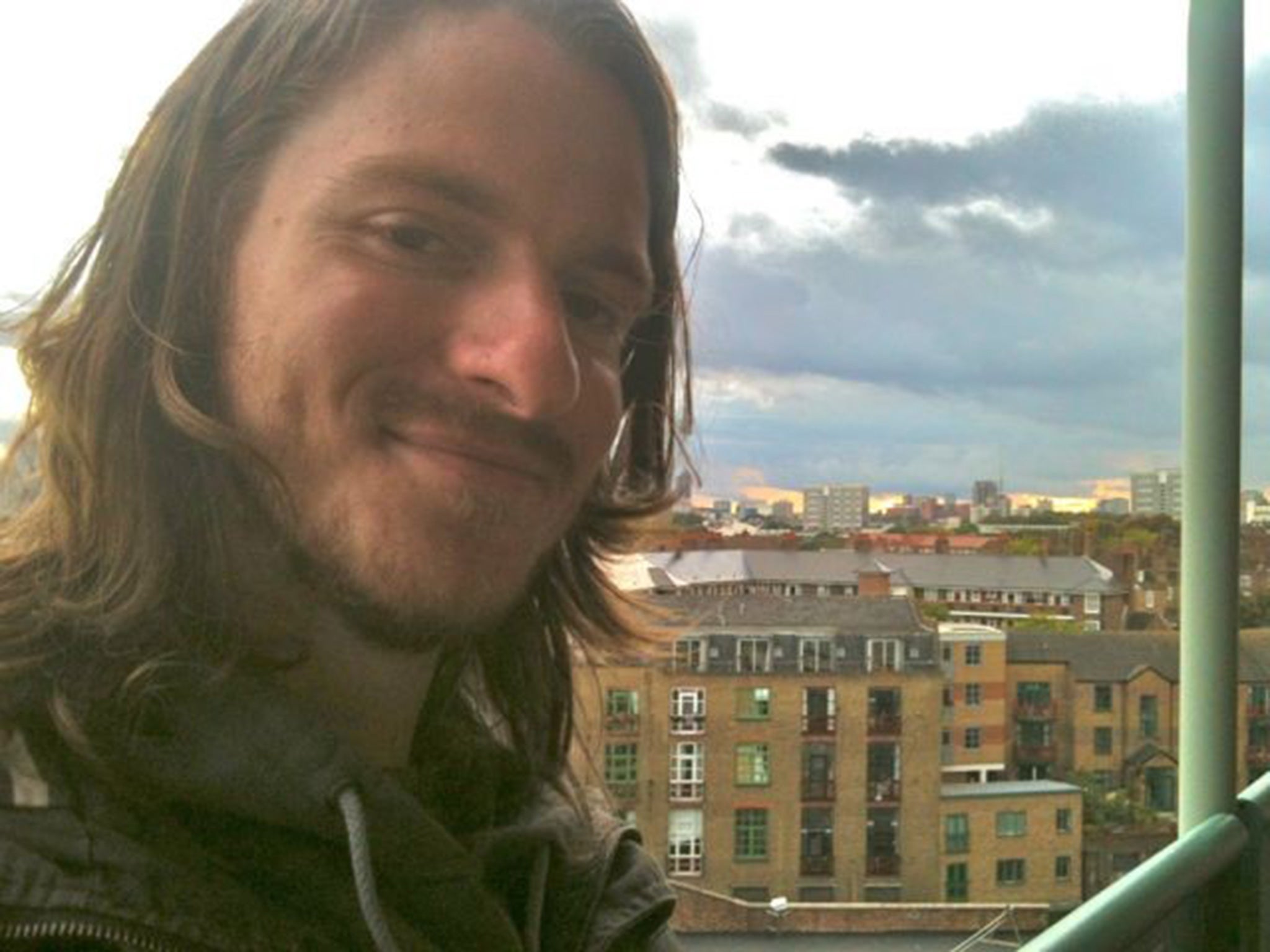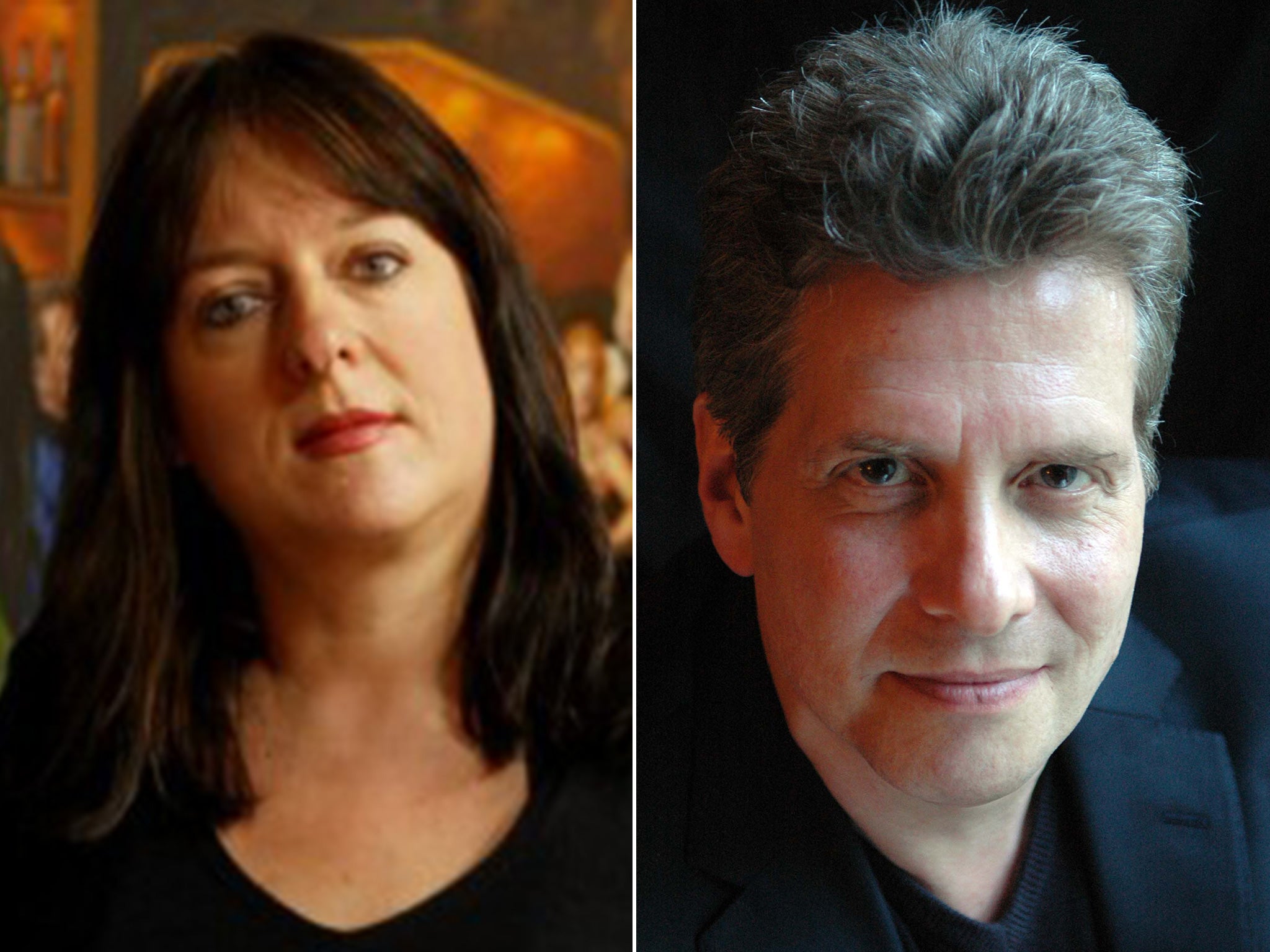Cosmo Landesman's eulogy for his son: Farewell my dear Jack
So many troubled young men kill themselves; now Julie Burchill’s son is among them. To highlight the issue, Cosmo Landesman has let his own funeral eulogy be published

Your support helps us to tell the story
From reproductive rights to climate change to Big Tech, The Independent is on the ground when the story is developing. Whether it's investigating the financials of Elon Musk's pro-Trump PAC or producing our latest documentary, 'The A Word', which shines a light on the American women fighting for reproductive rights, we know how important it is to parse out the facts from the messaging.
At such a critical moment in US history, we need reporters on the ground. Your donation allows us to keep sending journalists to speak to both sides of the story.
The Independent is trusted by Americans across the entire political spectrum. And unlike many other quality news outlets, we choose not to lock Americans out of our reporting and analysis with paywalls. We believe quality journalism should be available to everyone, paid for by those who can afford it.
Your support makes all the difference.Hello, welcome and thank you for coming. I was last here four years ago when I came to say goodbye to my mother Fran who died in July 2011. And six months earlier, I came here to say goodbye to my dad, Jay. And now I've come to say goodbye to my son Jack. We all have.
Saying goodbye to my parents wasn’t hard. It didn’t hurt the way this hurts. They both enjoyed wonderful lives. As the saying goes; they’d both had good innings. One of the things that hurts so much, that causes me such regret and sadness about Jack’s death is that he didn’t have a good innings. His was a life more endured than enjoyed. He knew more about the problems and pain of life than the pleasures.
I don’t really have an explanation for this. Recently, I looked at my old photos of Jack as a baby and a toddler and Jack as a young boy and in every photo there’s this big, happy Jack smile. It’s the beaming smile of a boy lost in joy. But as Jack gets older something happens. You can see it in the photographs: his smile is missing. The joy has disappeared. Somewhere on the journey from adolescence to adulthood, Jack got lost. For years he suffered terrible depression, acute anxiety, stress, delusions, social isolation – all of which were exacerbated, and I suspect caused, by his use of recreational drugs. And so, some time between Friday 26 and Sunday 28 June, Jack killed himself in his small bedroom in a house in Harrow. When someone kills themselves, they leave a body behind. They leave broken hearts behind, and they leave a question behind: why? “Why?” is the great mystery of suicide – and for many people that can haunt and torment them all their lives, robbing them of any chance of peace. One reads in the papers of the bright, bubbly girl or the popular, happy boy who took their own lives and everyone is left asking: why?
Jack wasn’t one of them. He does not leave behind a why. For some years he had talked about wanting to take his life. And we knew how troubled, how tormented he was. I once asked him to write down what was going on in his head so I could try to understand what he was going through. And he described his condition as a feeling “of persistent emptiness ... a feeling of being completely dead emotionally and mentally”.

“I’ve lost the ability to have any kind of pleasurable emotional or verbal connection with anyone,” he continued, “resulting in the highest possible degree of isolation that anyone can go through ... it’s like being underwater and looking up to the surface where you can see the people that love you trying to reach in to pull you out of the water. But no matter how persistently they try, you are totally beyond their reach as you continue to plummet to the bottom of the ocean.”
I tried to convince Jack that he could find some sort of treatment, that he could start afresh and make a nice life for himself. It was never too late to start again. But no, Jack didn’t believe that was possible. “You don’t get it,” he said. “The old Jack, the old me is dead.”
Jack had convinced himself that he had damaged his brain and that nothing could ever be done to fix it. He had three brains scans that told him there was nothing wrong with his brain. But Jack didn’t believe it. He was certain he could never come back to the surface again. So he took his life.
It’s hard for us to understand how someone could do such a frightening and terrible thing. The writer David Foster Wallace – who also killed himself – tried to explain how it was possible. People like Jack are caught in what Wallace calls an “invisible agony’ – an agony that “reaches a certain unendurable level” and then they will kill themselves, in “the same way a trapped person will eventually jump from the window of a burning high-rise”.
Wallace continues: “Make no mistake about people who leap from burning windows. Their terror of falling from a great height is still just as great as it would be for you or me standing speculatively at the same window just checking out the view. The variable here is the other terror, the fire’s flames: when the flames get close enough, falling to death becomes the slightly less terrible of two terrors. It’s not desiring the fall; it’s terror of the flames.”
Jack decided to kill himself because the flames in his mind were worse than the fall. There is so much I would like to say to him right now. So I’m going to say it.
Since your death, I’ve wondered if you knew how much we all loved you. I tried to tell you how much your mum loved you and how much I loved you and look here – all these people who loved you. Did it ever sink in? I believe there were days when you did know that you were loved and that made you feel better about yourself and about your life. But there were days – and these days of darkness took over – when your mind played tricks on you. Terrible tricks. That poor, damaged and scared mind of yours told you lies. It said no one loved you because you were a “worthless piece of shit” – as you once put to me. And you believed it.
Jack, they were all lies, all lies. Tricks of the mind. I tried to get those lies and terrible tricks out of your head and failed. But my mind played tricks on me, too. I lost sight of something precious: I lost sight of you. That mind of mine did the most awful trick: it hid the loveable you from me.
It allowed your illness to take over and define you. You stopped being Jack and became an endless series of problems to deal with. You always needed this and you always needed that. I was always worried. Did you take your medication? Did you go to see your therapist? When did you last eat? And so on. I couldn’t see you anymore – you weren’t a person, you were a problem. But in death, your better self, the great, loveable Jack has come back to me. Reading the messages from people who knew you – the people in this room – I found you again. I found the Jack who was sensitive, so polite to people, good humoured, intelligent and so much fun.
One of my favourite Jack anecdotes comes from someone who knew you as a kid. He wrote: “I will never forget Jack. Such a lovely kid – even when he was jumping up and down on my head saying ‘Wake up, Terminator, wake up, Terminator’!’And I started to remember my own forgotten Jack stories too. All your lovely bits came back. I remember the time, not long ago, when I said: “I wish I had been a better dad to you.” You could have made some cutting remark. You could be wonderfully sarcastic. But no, you just gave me a big Jack grin and said: “Oh come on, man, don’t beat yourself up. You were a good dad.” How kind of you. How gracious.
Jack, for all your crazy psychotic music and your tatts and your silly gangsta stuff, you were at heart a gentleman. I remember you once said: “All I want to do is make Julie and you proud of me.” Well Jack, you did.
And finally, I want to thank everyone here and everyone who wrote to me. You gave Jack back to me. And he’s here in my heart resting. Jack, I admit I lost you for a while. But this time I promise I will never let you go.
A donation in respect of this speech and the main picture will be made to the charities Calm, which works to prevent male suicide (thecalmzone.net/donate), and Sobs, which helps those bereaved by suicide (uk-sobs.org.uk). For confidential support, call the Samaritans on 08457 909090, visit a local Samaritans branch or go to Samaritans.org
Join our commenting forum
Join thought-provoking conversations, follow other Independent readers and see their replies
Comments